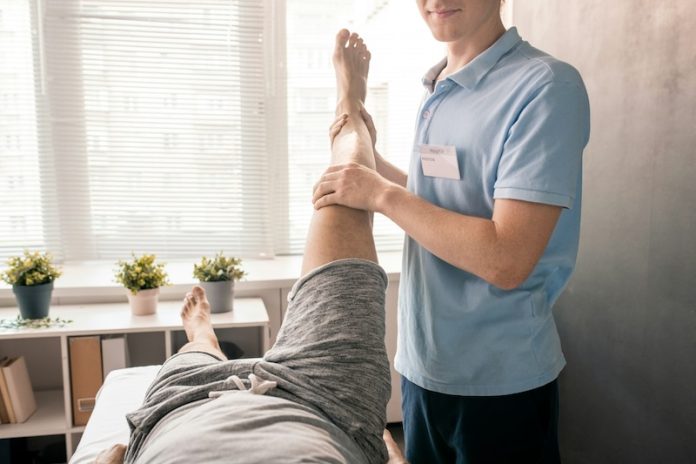
A study from MedStar Georgetown University Hospital has unveiled a promising non-surgical treatment for knee pain, particularly effective for people aged 50 and older.
The treatment, called genicular nerve radiofrequency ablation, is a minimally invasive procedure that targets knee pain caused by osteoarthritis, a common condition in older adults.
The study included 36 patients and sought to understand whether factors like age, gender, body mass index, previous surgeries, or conditions such as fibromyalgia influenced the effectiveness of the treatment.
All participants experienced significant pain relief, with the greatest improvements reported by patients aged 50 and above. These older participants also regained better knee function compared to younger patients, making the treatment especially valuable for this age group.
Genicular nerve radiofrequency ablation works by targeting specific nerves in the knee that transmit pain signals to the brain. Using imaging technology, interventional radiologists guide tiny probes to these nerves.
The probes emit radio waves that create heat, which dulls or destroys the nerve endings responsible for the pain. Since these nerves don’t control movement or balance, the procedure is considered safe.
The procedure is quick and minimally invasive, often requiring only small Band-Aids instead of stitches. For many patients, the treatment offers long-lasting pain relief, with effects typically lasting six months to two years.
This extended period of relief can significantly improve daily life, allowing individuals to return to activities they may have avoided due to knee pain.
While the study focused on knee osteoarthritis, researchers are exploring whether similar treatments can help relieve pain in other joints, such as the shoulders, hips, and the sacroiliac joint, where the spine connects to the pelvis. These efforts aim to expand the application of this innovative pain management technique.
For those dealing with chronic pain, the findings offer a new option that avoids surgery.
Chronic pain is a widespread issue, with many people turning to various strategies for relief, such as medical marijuana, specific vitamins to strengthen bones, and even targeted exercise routines like powerlifting to manage back pain.
Treatments like genicular nerve radiofrequency ablation add to the growing list of non-surgical interventions designed to improve quality of life.
The study, led by Kaitlin Carrato and her team, was presented at the Society of Interventional Radiology Annual Scientific Meeting.
It highlights the potential of this procedure to transform pain management for older adults, providing a safer and less invasive alternative to traditional surgical methods.
As the research continues, the hope is to refine and expand the use of this treatment, offering more people a chance to live with less pain and greater mobility.
For those struggling with knee osteoarthritis, this innovative procedure represents a new avenue for relief and an opportunity to regain independence in their daily lives.
If you care about bone health, please read studies that plant-based diets can harm your bone health without these nutrients, and this bone problem may strongly increase COVID-19 death risk.
For more information about wellness, please see recent studies that too much of this vitamin may increase your risk of bone fractures, and results showing this type of exercise may protect your bone health, slow down bone aging.
Copyright © 2024 Knowridge Science Report. All rights reserved.



